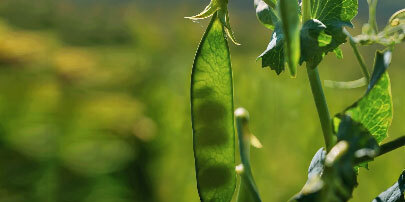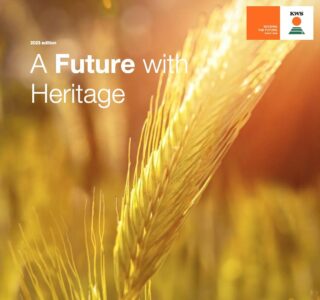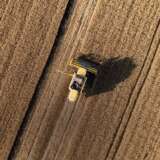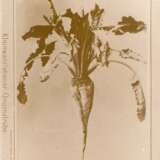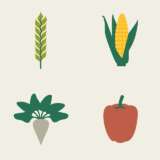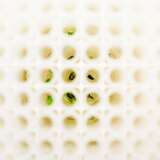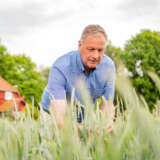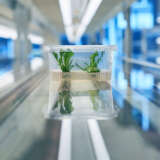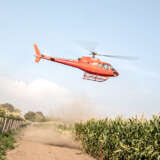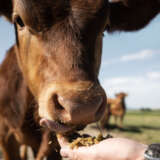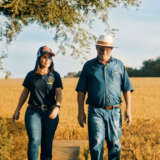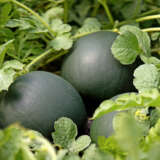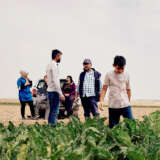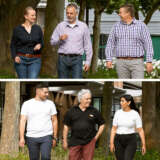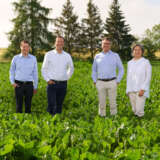The KWS seed story
A future with heritage.
Klein Wanzleben. A small town in the northern part of the fertile Börde district in Saxony-Anhalt. The sugar town, as many call it, is one of the oldest sugar-processing locations in Germany. The fact that it lent its name to KWS at the start of the company’s successful history is due, in addition to the area’s good overall conditions, to one man: Matthias Christian Rabbethge. Born into a farming family, Rabbethge not only contributed his expertise and enthusiasm for new techniques, he also saw the potential of sugarbeet cultivation. In 1856, Rabbethge bought a majority shareholding in the sugarbeet factory — none of his fellow shareholders recognized the hidden opportunities for a future in the world of plant breeding …
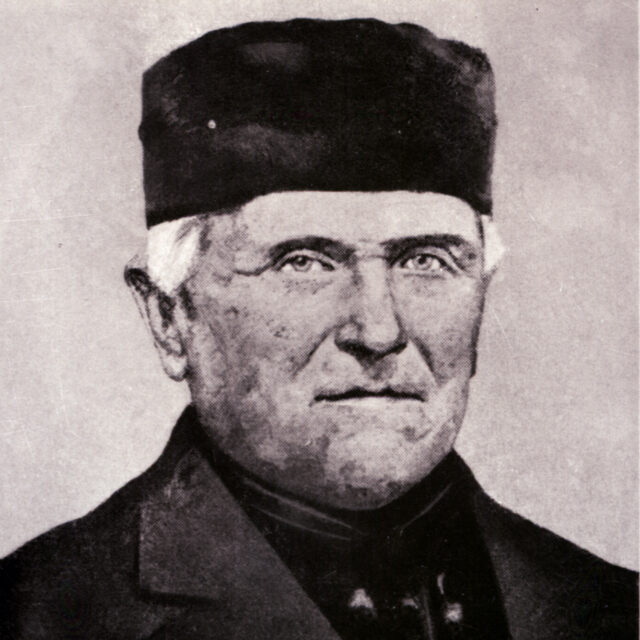
One can state with confidence that he (Rabbethge) laid the right foundation for the rise of sugar production, beet seed breeding and farming in Germany.
Hermann Becker | Long-time companion and biographer of Matthias Christian Rabbethge
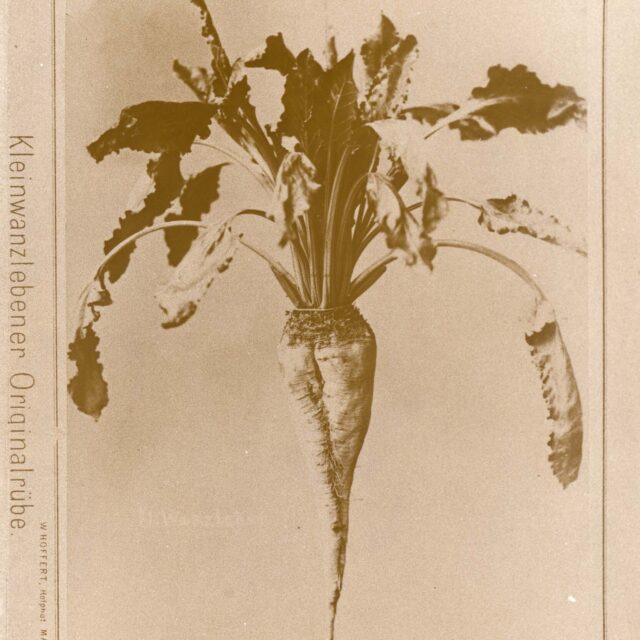
Matthias Christian Rabbethge is always one step ahead of the competition: In 1856, he recognizes the potential of the beet-sugar business and founds KWS. His son, Matthias Rabbethge, Jr., is the first person in Germany to systematically breed sugarbeets.
One of the first joint stock companies: In 1885, the general partnership becomes Kleinwanzleben Sugar Factory, formerly Rabbethge &
Giesecke Joint Stock Company.
The sugar market is booming: High-yield seed is in great demand and the KWS success curve rises rapidly. KWS’s first international location opens in Ukraine, at that time the largest sugarbeet-growing region in the world.
At the start of the 1920s, KWS expands its seed business — in addition to breeding fodder beets and potatoes, the company begins to breed wheat and barley.
A cloak-and-dagger mission: Along with 60 metric tons of elite seed, the British military transports the Rabbethge and Giesecke/Büchting families from Klein Wanzleben to Einbeck. “Establishing our company had a high priority,” says Carl-Ernst Büchting, looking back on the multiple subsidies from the British. KWS quickly gets back on the winning track with the leading sugarbeet variety Kleinwanzlebener E.
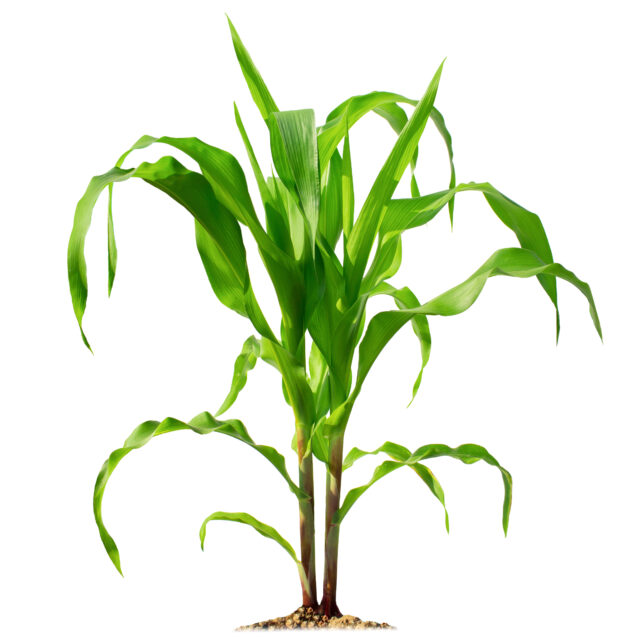
Some promising new products enhance the KWS family in 1955: hybrid corn varieties and oil and protein plants.
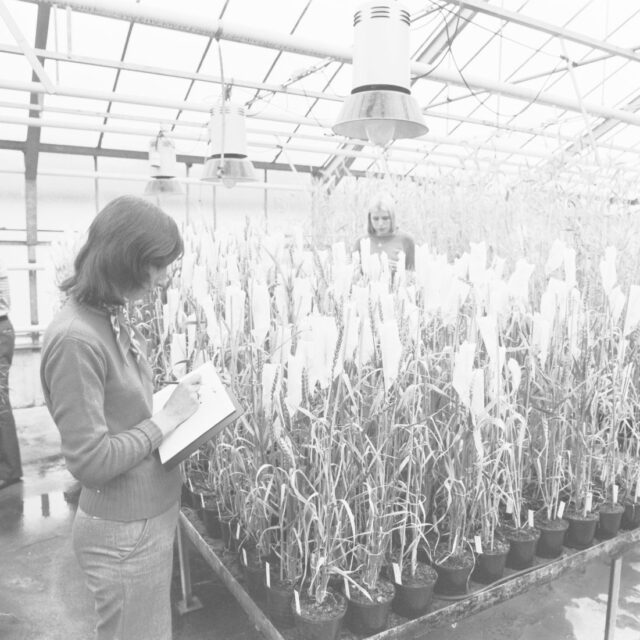
The product range grows; the cereals business thrives: In 1968, KWS merges its wheat and barley breeding programs with its rye and oats breeding programs under the umbrella of Lochow-Petkus GmbH. This gives cereals breeding a permanent foothold at KWS.
Adopting the abbreviation KWS (Kleinwanzlebener Saatzucht) in 1975, the company remains true to its origins while simplifying its name to more effectively position itself on the global market.
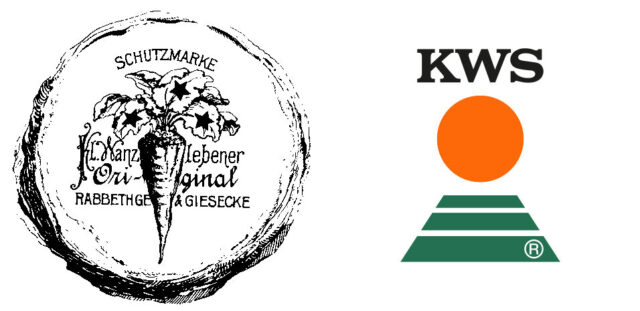
KWS intensifies its molecular research and opens a new chapter in breeding history. The aim: faster progress in breeding for new, improved varieties.
Productive cooperation with the French agricultural cooperative Limagrain: Thanks to the joint venture AgReliant, KWS is represented throughout most of the American corn belt with breeding, production and marketing of innovative corn varieties.
KWS is included in the German stock index SDAX. The share price continues to develop favorably in line with business growth.
Active around the globe: In 2006, the share of revenue outside Germany totals more than 70 percent.
The family-founded Dutch vegetable seed producer Pop Vriend becomes part of KWS — a first step in the development of an international vegetable breeding network.
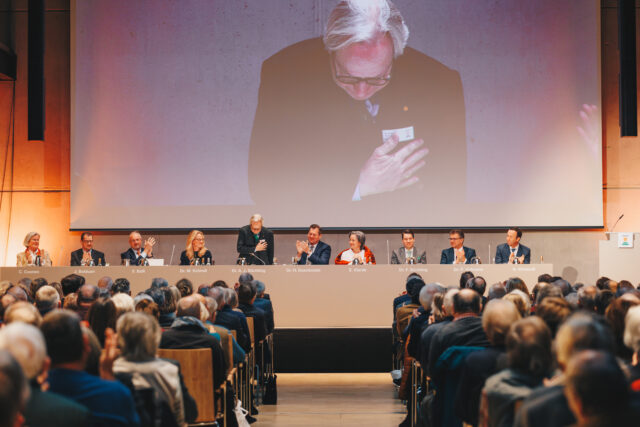
After 47 years, Andreas J. Büchting has resigned from his positions at KWS, which included Supervisory Board Chairperson, as planned. Felix Büchting, a member of the seventh generation of the founding family, became Spokesperson of the Executive Board in early 2023.

Matthias Christian Rabbethge is always one step ahead of the competition: In 1856, he recognizes the potential of the beet-sugar business and founds KWS. His son, Matthias Rabbethge, Jr., is the first person in Germany to systematically breed sugarbeets.
One of the first joint stock companies: In 1885, the general partnership becomes Kleinwanzleben Sugar Factory, formerly Rabbethge &
Giesecke Joint Stock Company.
The sugar market is booming: High-yield seed is in great demand and the KWS success curve rises rapidly. KWS’s first international location opens in Ukraine, at that time the largest sugarbeet-growing region in the world.
At the start of the 1920s, KWS expands its seed business — in addition to breeding fodder beets and potatoes, the company begins to breed wheat and barley.
A cloak-and-dagger mission: Along with 60 metric tons of elite seed, the British military transports the Rabbethge and Giesecke/Büchting families from Klein Wanzleben to Einbeck. “Establishing our company had a high priority,” says Carl-Ernst Büchting, looking back on the multiple subsidies from the British. KWS quickly gets back on the winning track with the leading sugarbeet variety Kleinwanzlebener E.

Some promising new products enhance the KWS family in 1955: hybrid corn varieties and oil and protein plants.

The product range grows; the cereals business thrives: In 1968, KWS merges its wheat and barley breeding programs with its rye and oats breeding programs under the umbrella of Lochow-Petkus GmbH. This gives cereals breeding a permanent foothold at KWS.
Adopting the abbreviation KWS (Kleinwanzlebener Saatzucht) in 1975, the company remains true to its origins while simplifying its name to more effectively position itself on the global market.

KWS intensifies its molecular research and opens a new chapter in breeding history. The aim: faster progress in breeding for new, improved varieties.
Productive cooperation with the French agricultural cooperative Limagrain: Thanks to the joint venture AgReliant, KWS is represented throughout most of the American corn belt with breeding, production and marketing of innovative corn varieties.
KWS is included in the German stock index SDAX. The share price continues to develop favorably in line with business growth.
Active around the globe: In 2006, the share of revenue outside Germany totals more than 70 percent.
The family-founded Dutch vegetable seed producer Pop Vriend becomes part of KWS — a first step in the development of an international vegetable breeding network.

After 47 years, Andreas J. Büchting has resigned from his positions at KWS, which included Supervisory Board Chairperson, as planned. Felix Büchting, a member of the seventh generation of the founding family, became Spokesperson of the Executive Board in early 2023.
